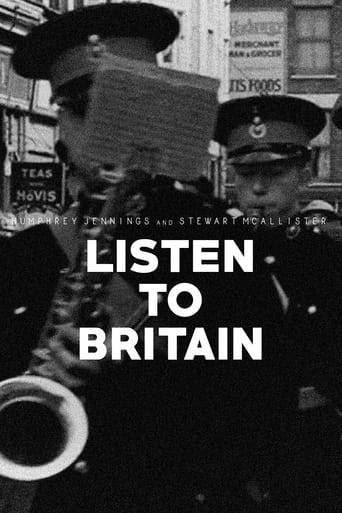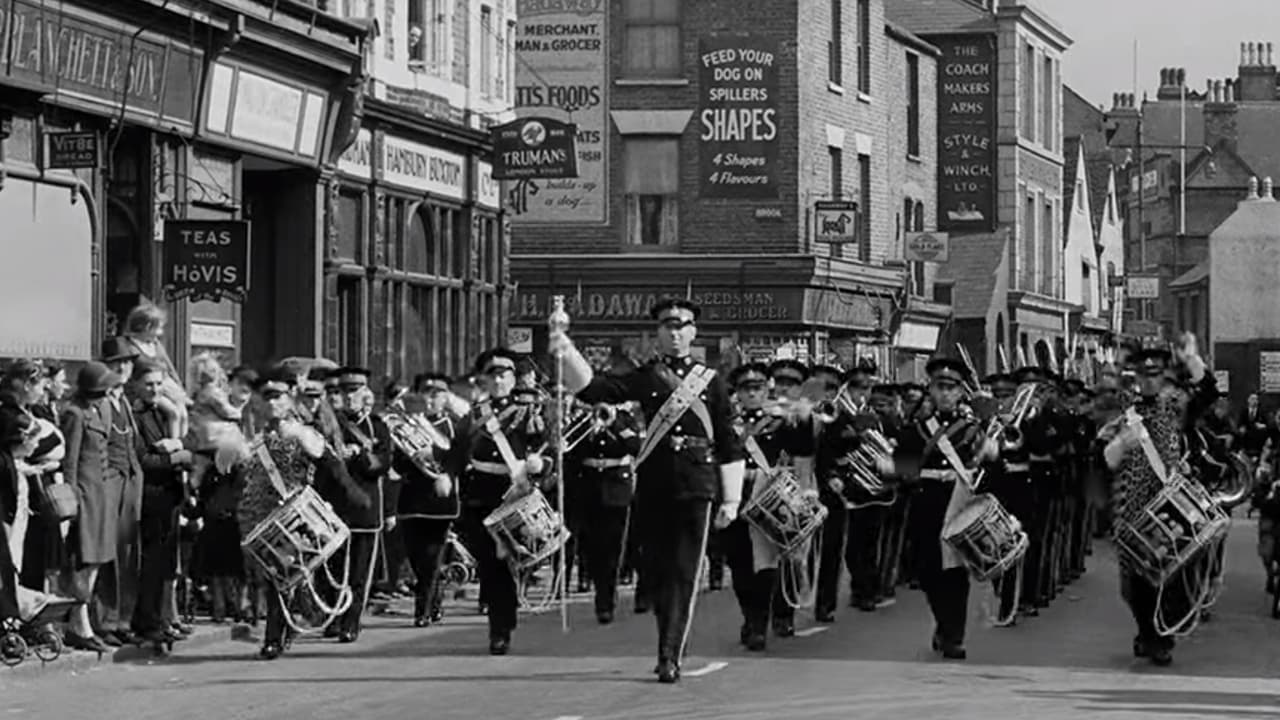Horst in Translation (filmreviews@web.de)
"Listen to Britain" is a 20-minute black-and-white documentary from the days of World War II almost 75 years ago. The two directors, Humphrey Jenning and Stewart McAllister both died pretty early and this may be the most known film they made. It was nominated for an Academy Award although that really was not that much of an achievement as there were over 20 nominees in the documentary category that year and four winners too. In here you see basically all kinds of aspects from life in Britain back in the day: civilians, industry worked, soldiers and even some landscape recordings. Obviously, there is also quite some patriotic touch to it. You had to be proud of Britannia and believe in her. However, from the filmmaking perspective I cannot see anything particularly interesting or outstanding here. It's worth a watch for historians, but everybody else does not have to see it.
gavin6942
A depiction of life in wartime England during the Second World War. Director Humphrey Jennings visits many aspects of civilian life and of the turmoil and privation caused by the war, all without narration.The title is literal -- the director is asking us to "listen" to "Britain". Not necessarily its people, and not the narration of someone telling us how to feel. Just the sound of the radio, the airplane, and anything else going on in daily life during the war. They even dance to "Roll Out the Barrel", though in some weird circular slow dance style rather than the polka version I know and love.This is probably considered Humphrey Jennings' masterpiece. That may be a fair assessment.
sandover
Unless one is a righteous liberal that can invent his shock of propaganda, you have to wait some ten minutes into this little film, that is half its narrative time, to call it that, in order to meet some propaganda meat, that is the scene of a female, arguably a mother, who watches a school yard with children playing and singing in circle, and THEN casting a glance on the photo of a soldier, arguably her husband on the front somewhere.The rest of the film was quite tame for my eyes (my ears towards the end as the sound quality deteriorated were somewhat offended, no?). The change from lunch time concert - and this is the reason any classical music enthusiast should watch this film, for that rare glimpse of Myra Hess, what expression cut her hands and face! - to industrial noise was funny. The tableau of the workers was as superb as any David painting, not animated by any kind of Soviet thrust. Is this due to English moderation and natural superiority, civilized manners, civility that propaganda is not pushy, and one could even say that the cinematic command is not that assured even? The early shot of men in uniform stationed somewhere, singing together is the closest we come to report from the front and the parade towards the end is a fraction of it for us to be witnesses of exultant pride. From report to witness to testimony this little film does not exploit hideous proportions as a piece of fiction like, say, "The Young Victoria" does in recent years (I refer to the coronation scene).The sense of improvisation in the film makes it more of a curiosity than an animosity, one whose quirky opaqueness should have been there for the audience back then, and one whose interest for us is different perhaps, yet valid.
Dr. Barry Worthington (shrbw)
Jennings makes an interesting experiment. He films a number of scenes representative of wartime Britain, but does not include a spoken commentary or an anonymous musical backing.Instead, the sound alone (often amplified and remixed)conveys mood, emphasis, and narrative climax. A recital given by Dame Myra Hess in the National Gallery provides the background of a stirring climax.


 AD
AD

